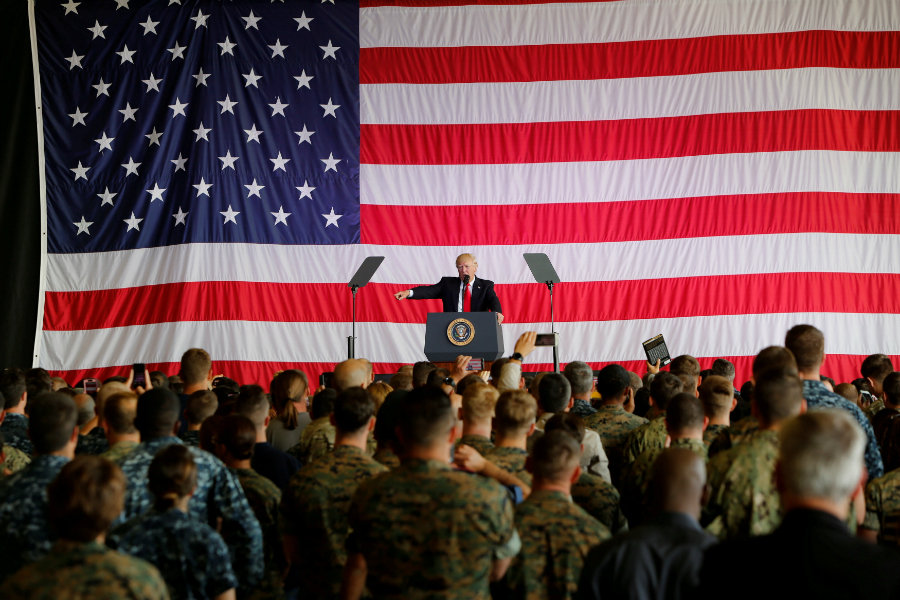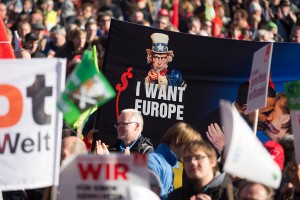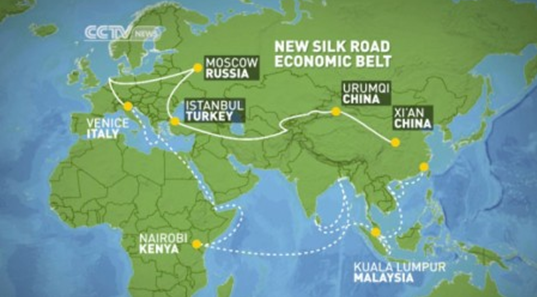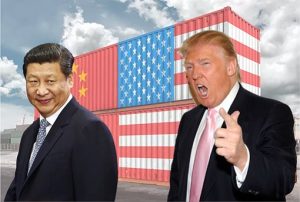Note to readers: please click the share buttons above
F. William Engdahl was interviewed for the Global Research News Hour radio program about his recent book, Manifest Destiny: Democracy as Cognitive Dissonance.
In the book, Engdahl outlines a weapon of war in the costume of furthering democratic rights and freedoms. Various case studies include the break-up of the Soviet Union, the break up of Yugoslavia, and the attempted overthrow of the Chinese State.
F. William Engdahl is an award-winning geopolitical analyst, strategic risk consultant, professor and lecturer. He has contributed to a number of international publications on political affairs and economics, including Asia Times, FinancialSense.com, The Real News, RT.com Op Edge and Foresight Magazine among others. He is a Research Associate with the Centre for Research on Globalization. His various books on geopolitics have been translated into 14 different languages.
An abbreviated version of this interview aired in May on the Global Research News Hour.
Transcript – GR interviews F. William Engdahl. May, 2018
Global Research: So we’re joined right now by F. William Engdahl. He is based in Germany. He is a prominent commentator and geopolitical analyst. And he is also the author of a recent book. Right in 2018, fresh off the press you might say! And the name of the book is Manifest Destiny: Democracy as Cognitive Dissonance. So, F. William Engdahl, thank you very much for joining us!
While we’re talking about the subject of ‘fake democracy,’ we’re talking essentially about the new – er, not so new, but a weapon of warfare that’s being utilized by the imperial power that is the U.S. as a way of executing regime change in order to further their own imperial interests and I think that the way most people are accustomed to thinking about U.S. military power, their thinking about aggressive wars and pretexts built on self-defence against the ‘communists’ or the ‘terrorists’ or whatever. But we’re dealing… we seem to be dealing with a mechanism here that’s much more insidious. So do you want to maybe just sort of help us introduce this mechanism, and how far back it goes?
change in order to further their own imperial interests and I think that the way most people are accustomed to thinking about U.S. military power, their thinking about aggressive wars and pretexts built on self-defence against the ‘communists’ or the ‘terrorists’ or whatever. But we’re dealing… we seem to be dealing with a mechanism here that’s much more insidious. So do you want to maybe just sort of help us introduce this mechanism, and how far back it goes?
William Engdahl: The mechanism goes back – and the reason I decided to dedicate an entire book to this … in the degree of calculation and diabolical mechanisms that are employed – it’s often very, very poorly understood especially when countries that are – the country that is the target of these mechanisms.
It came out of a project proposed during the Reagan Administration in 1983 by Reagan’s CIA Director William Casey- Bill Casey, and at that time the CIA was under the spotlight in Senate hearings and exposés around the world, the revelations by CIA whistle-blowers like Mr. Marchetti or others, and for their involvement in the Pinochet coup in Chile, for the Iranian toppling of Mossadeq in the fifties and … all that was beginning to come out and it was having huge negative effects, and Casey proposed doing what the CIA does but doing it privately, and that resulted in creation of something by U.S. Congress called the National Endowment for Democracy. And the name is very deliberately chosen. It’s a linguistic manipulation, if you will. Seems (to) sound like the National Endowment for the Humanities, National Endowment for the Arts…It sounds very philanthropic.
In reality, this is a CIA directed, U.S. Intelligence community directed operation using Non-Governmental Organizations, in a coherent way, I call them ‘fake democracy’ NGOs and even give a better description in the actual book itself. And I detail which NGOs are used for that.
The monies come from U.S. government or from certain private foundations who seem to have unlimited funds and seem to be very closely connected to the State Department and the Intelligence community, and they have systematically targeted nation after nation to topple regimes that are not friendly to the Washington agenda.
GR: As I understand it we’re kind of talking about what I think of as a Trojan Horse, except instead of a wooden horse full of soldiers that’s being sent to the target country, here we’re talking about, well, like you say these human rights and democracy furthering organizations that are undermining the sovereign authority of the country.
WE: The way it works is – very valid one, I agree – the first step occasion that these U.S. government directed fake democracies NGOs came with Poland, with the Solidarność movement, where the U.S. government through these NGOs like the National Endowment for Democracy, the AFL-CIO connected… of the NED and others, they funneled millions of dollars, U.S. taxpayer dollars, into Lech Walesa’s Solidarność and created mass protests on the streets in Poland at a point where the communist government was simply powerless to intervene, among other reasons because, unbeknownst to most people, the Polish Pope John Paul II … and he met with Ronald Reagan and entered into a secret agreement, and this was later confirmed by his – Reagan’s National Security Advisor – a secret agreement to bring down the communist regime in Poland, and they did that very successfully.
And just to give you an idea, they – once they brought down the regime, the U.S. brought in its economic shock troops in the form of Harvard economists Jeffrey Sachs in his famous, or infamous shock theory. What they did was to demand the Polish – the communist, everyone was under State control – that they immediately privatize everything, that they free up the zloty against the dollar so the zloty fell like a stone. And then if you suddenly had dollar assets, like Western investors who were on the inside of the scheme did, you could buy up some of the Crown Jewels of the Polish economy for pennies on the dollar. And the losers in this were the Polish people who – unemployment exploded, just a time of incredible misery, and this is basically the model, that was then turned in 1989 to three major communist countries at the same time and this is all under George Herbert Walker Bush – George Bush Sr. – from the CIA Director who was very much in the middle of these so-called fake democracy NGOs. And they targeted the Soviet Union, Yugoslavia, and the People’s Republic of China, all three simultaneously in 1989.
In the case of the Soviet Union, they managed to bring in a CIA asset by the name of Boris Yeltsin, and use Yeltsin to simply what I call in the book the Rape of Russia – to literally steal and rob from the Russian State and the Russian people almost anything of value they could get their k leptocratic hands on. And, in the case of Yugoslavia, it led – it was the ignition that led to the explosion of a civil war in Yugoslavia between Croatia, Bosnia-Herzegovina, Serbia … and completely destroyed that country.
In the case of China, the Chinese … somehow managed to get wind of what was going on and kicked out certain NGO operatives that were connected (to) the U.S. State Department and the U.S. Ambassador at that time people like James Lilley who was a former CIA crony (under) George Bush Sr., no accident that he was Ambassador at that time. And of course, in my estimation running the Tiananmen Square destabilization on the ground in Beijing.
By the way, one thing that I document quite in detail in the book, and people may be shocked by this: there was never a student massacre by the People’s Liberation Army in Tiananmen Square in June of 1989. That was fabricated by the U.S. Ambassador James Lilley and by the Western media … This gives you an idea of how these fake democracy NGOs…
GR: When we talk about fake democracies, it all seems very benign at first, and what we’re finding is that this covert funding that’s going to promote certain candidates or certain movements, and that has the appearance of making the target government that the U.S. figures are looking to overthrow, giving them a bad image both in the eyes of the domestic population and in the eyes of the wider world. Is it possible to detail some of the money flows? How does it translate on the ground?
WE: How it translates on the ground is the money goes to all sorts of – the means are just innumerable. All sorts of NGOs in target countries that prop up out of thin air, and then, you know, ‘democracy for Ukraine’ or ‘freedom for Iran’ … but they’re simply financed by U.S. government money, or indirectly by think tanks … following the money.
And – this is – we’re talking about billions of dollars – what they do is they refine the sort of leaders and, again, in the period of the Ukraine colour revolution, the so-called Orange Revolution 2003, 2004 and also in Georgia next door, they begin focusing on election processes and having poll watchers that they train – biased incredulous poll watchers…not neutral poll watchers from international organizations, but fake poll watchers. And then coordinating with embedded media like CNN or BBC to put out a certain message, and then they use other techniques.
There’s an organization that did the successful overthrow of Milosevic after 2000 in Yugoslavia and Serbia, called Otpor, trained by U.S. Intelligence. And that later transformed itself into a professional organization keeping the cover of this successful Serbian regime change organization but they call CANVAS, C-A-N-V-A-S, and the same people are involved. They’re very secretive about where they get their funding from but it’s clear that it’s coordinated with the U.S. State Department’s Intelligence.
And what they do, they serve as the logistics training centre, the people on the ground for the U.S. government in – usually through the Embassy – begin recruiting student activists usually, they’re the most effective, and bringing them into training systems, usually in Belgrade or elsewhere, sometimes they leave the country. And they’re trained in techniques of non-violence according to textbook regime shops – Albert Einstein Institution – non-violence is a method of warfare… and they’re trained in techniques, very much similar to what we see going on today in Armenia. But they’re trained in techniques to discredit the power and the authority of authoritarian governments, or governments who try to resist mass protests, as many governments will do. Certainly you can imagine the U.S. government …it would stop at nothing to crush certain dissent.
The techniques that are – have been refined in facebook and twitter. For example, in the Arab Spring, which was a NGO operation backed by the U.S. government when Hillary Clinton was Secretary of State, to change the map of the Middle East and bring U.S. military control of the key oil and gas regions of the world outside of Russia and the Russian Federation under direct U.S. military control, that process is ongoing to this day.
The techniques are constantly being refined. The RAND corporation, research and development corporation as detailed in the book, Manifest Destiny, is developing techniques they call ‘swarming.’ And they did a study of all or most of the major world brilliant military commanders from Alexander the Great to Genghis Khan, Napoleon, and others, and their military tactics. They identified how to … with the doctrine of ‘swarming’ as in a swarm of bees…And then they applied this to these mass protests, and using GPS satellite communication with certain key leaders in these protests, they used twitter and facebook to communicate with groups of protesters that have been prudent for each other and normalized. And then their tactics will be protest- and-run, protest-and-run, regroup in different parts of the city and then keep the government completely off guard, keep the military or the security police off guard, so that the power of the State looks like it’s impotent. And that begins to undermine authority.
GR: William, I want to try to get…
WE: I should add that in most cases, and certainly this is the case in Ukraine in 2014.
GR: I want to make sure a specific distinction here.
WE: Yes?
GR: I mean, with these popular mobilizations, we’re not talking about a homogeneous group of people who are all being paid off by the National Endowment for Democracy. There are a lot of sincere people who are being caught up in all of this. It’s just that these …well funded mechanisms are just so effective at reaching out to people, but a lot of the people who are being brought in are, they’re rather sincere in their convictions. I mean, is that not true? Is that not accurate? I mean we’re not just talking about every activist … getting a pay cheque.
WE: Exactly! Crucial point about this, and I’m glad you brought it up, is that the…no no no no, the key leaders that steer the thing, and for most of the protesters, most of them are as you say innocent and want more freedom – and who doesn’t want individual freedom and democracy being all good things, and maybe your nation’s economy is really down and you think well the Western goods are prosperous. If we go along with the West we’ll get all these American quality of life and so forth, which never happens…
Let’s take the example of Egypt… and there you had the case of certain key organizations, umbrella organizations … that mobilized millions of students. I know some are – have spoken to me, some of the students who were in those protests, and they deeply believed that they were fighting for democracy and human rights. And that, without that it doesn’t work. It’s not convincing. So that’s an essential element of it.
But what most of the students didn’t realize is that behind the scenes were front organizations of a political terrorist cult, and I use that term very precisely, called the Muslim Brotherhood, which was created in Egypt by British Intelligence in the 1920s. And in the time of the Arab Spring and backed by the Hillary Clinton State Department as the alternative to governments like Mubarak or Libya’s Gaddafi, or Ben Ali in Tunisia. And so the demonstrations spread. Were successful. There was collusion on elements of the Egyptian military to – who were pressured by the Pentagon to not support Mubarak at a critical moment. But, once Mubarak stepped down, the Muslim Brotherhood and the U.S. government moved to have early elections, and the only organized force that was prepared to win early elections was the Muslim Brotherhood. And that’s where you got Mohammed Morsi and the government controlled by the Muslim Brotherhood and supported by the U.S. State Department and the CIA which had been working, collaborating in cahoots with the Muslim Brotherhood since the early 1950s.
So in this, I document in some detail in an earlier book of mine called The Lost Hegemon: Whom the Gods would Destroy, which details the connection between the Muslim Brotherhood and the CIA.
In any event, the students were suddenly completely left in the lurch by Washington and the U.S. government, because their agenda was to bring in this political terrorist organization called the Muslim Brotherhood and impose a U.S. controlled regime on the country.
GR: Could you talk about the importance of some of these economic arrangements – the IMF. Because it seems like a consistent element in all successful coloured revolutions is the willingness of the favoured political order to jump on board with IMF style reforms. I mean, are we talking about a kind of like a one-two – first you get the revolution and then you cement it with an IMF style arrangement?
WE: Well, it works both ways actually. I think that uh, let’s take the case Poland. In the case of Poland they had borrowed heavily in the dollar markets to finance the economic shortages and so forth, because it was a very grim time economically for Warsaw Pact countries at the end of the 1980s. And at a certain point they were cut off from Western credits – Western private bank credits – unless they would agree, the government would need to submit to IMF conditionalities, and that set the trap.
And this was also the case in Yugoslavia, where a similar situation ensued and the IMF conditionalities were used to create the economic tensions between different parts of Yugoslavia – different ethnic groups in Yugoslavia to create the … And then under Bush Senior, the U.S. Congress passed a law that forced the break-up of Yugoslavia if they wanted to receive any further U.S. credits.
So the IMF was used, in the case of the Russian Federation, the IMF was brought in by the Bush Administration in 1990 as the <inaudible> of the economic transformation order …part of the economic transformation of the former Soviet Union. And they would play an instrumental role in forcing – Boris Yeltsin was the willing actor in this – but forcing the privatization of State assets and selling them off on the world market at pennies on the dollar. And that’s the crucial role of the IMF in all of this.
GR: In terms of financing these revolutions, how much of that funding is coming from, you know, authorized by Congress versus off-the-book financing, and where is the off-the-book financing coming from?
WE: [Chuckle] That would be a little difficult because I… certain … I am hesitant to name on the air, but there are private foundations. If you go into the book you find them amply documented with footnotes and sources. But there are private foundations that work in connection with the U.S. government finance, the National Endowment for Democracy, the NED. And the breakdown of that is very difficult simply because they don’t disclose in an open and honest way fully what they’re financing. It’s a lot of covert fund transfers from offshore entities and so forth. So, it’s very difficult to trace.
GR: Can you speak to any funding sources that we know about? For example, we’ve heard about Iran-Contra, where they were able to uh, further illegal uh, shipments. The arms for hostages deal where they were able to utilize drug networks to finance the Contras in Nicaragua – some interesting things happening there currently. You also mention in the book about gold that had belonged to the Japanese during the war, and that was then – ended up in the Phillipines. So I was wondering if you could speak to some of those source – I mean we may not have the exact breakdown but we do know that some of that money ended up coming from some of these off-the-book sources and entering into these… money-laundering and what not.
WE: Well the destruction of the Soviet Union and the rape of Russia, the things you mention, it wasn’t Japanese gold, it was gold that the Japanese occupation army during World War II stole from as it traveled from Mongolia, from Indonesia and other countries that they occupied … And it was buried deep caves in the Philippines in the event Japan would lose the war. The Emperor’s family was the only ones – they were the only ones privy to the locations, until Ferdinand Marcos, an asset of the CIA, he was President of the Philippines – a dictator – back in the 1980s, managed to uncover some of the sites. He got hold of one of the … of the Japanese Army, and they were digging some of these places, and eventually uncovered the stolen gold.
Well, he made a mistake in using another CIA asset named Adnan Khashoggi, a Saudi Arabian a rms dealer, ostensibly the richest man in the world at that time. Adnan Khashoggi is used by Marcos to sell the Japanese gold onto the world market…and Adnan Khashoggi took his friend George Herbert Walker Bush, one of the CIA members in the agency, U.S. government, and they destabilized and toppled the Marcos regime. So they used that Philippine gold – the Marcos gold – as collateral to create derivatives that were used to nominally back up the buying up of the Russian State assets by certain so-called Russian oligarchs, who laundered the money through Western banks in Switzerland and the Jersey Islands offshore in Ukraine, other places. And all of that was done under the supervision of the CIA. Edmond Safra’s Bank was one of the banks involved as well.
GR: It’s not as if every time there’s a popular mobilization that there isn’t a genuine effort at revolutionary pressure, but I think that – I mean I’ve participated in popular mobilizations myself…
WE: As have I! [laughter]
GR: Since there are people who do legitimately want to overthrow an oppressive government, an oppressive regime, versus those that are stage-managed by these U.S. covert sources…Is there a way that we can distinguish between a genuine and a fake democracy revolution?
WE: It’s sometimes very difficult. For example the ongoing protests in Yerevan and Armenia. Armenia is a former Soviet – part of the Soviet Union, as well, and is a member of the Russian-led Eurasian Economic Union with the countries with Belarus, Russia, Kazakhstan and others. And a very strategic country for the security of Russia.
Now the protests that have broken out a couple of weeks ago in Armenia are aimed at closing – successfully closing the resignation of Serzh Sargsyan who – former president for the last decade – who had been elected by the Parliament … As prime minister and back after a new law was introduced which transferred all of the presidential powers to lead into the prime minister. So the mass protests have been focused on the fact that Sargsyan was simply playing a trick to become defacto dictator for life, a little bit like a reverse play on the Erdogan operation in Turkey where the powers devolved from prime minister which Erdogan was, to president which he is now. It went the other way in Armenia.
Now, the popular opposition … Nikol Pashinyan, a former journalist, is the only candidate to replace Sargsyan as prime minister. Sargsyan resigned and announced that “I was wrong, and Pashinyan was right.” What we don’t know, and this is very fine line…yes, the same U.S. government NGOs and private foundations that work with those U.S. government NGOs or the National Endowment for Democracy, are very active in Armenia and have been active in Armenia, on all the kinds of financing operations that have been connected with coloured revolutions in the past. This time, the opposition leader, Pashinyan, goes out of his way to stress that he’s not against Armenia’s membership in the Eurasian Economic Union or against Russia, that he’s against the corruption of the Sargsyan – the former government, and the fact that the Armenian economy is in such bad shape.
So, there are genuine grievances that the population has, but the point is the U.S. State Department is very much on the scene there in telephone contact with Pashinyan, and all the indications are it hasn’t been at its initiation a coloured revolution. The U.S. State Department the intelligence agencies are for sure trying to draw up the best way to take advantage of that in Azerbaijan, the … conflict with Armenia over Nagorno-Karabakh, that … into a shooting conflict a year and a half ago. Parliamentarians from Azerbaijan are saying let’s take advantage of this chaos in Armenia and retake Nagorno-Karabakh which is majority Armenian ethnic population. It seceded in 1991 from Azerbaijan and has been contested by it. A truce agreement between both countries upsets it. A very uneasy truce. So, in some cases, it’s a very difficult distinction.
Let’s take another example. There is a series of student-led protests in Hong Kong, which used to be a British colony as of about 1989. 1999 rather. And those protests were given the name in the media as the ‘umbrella revolution,’ because umbrellas were used by the students who… in it as a symbol. Later, it came out that they were of course protesting the heavy-handed , anti-democratic measures of Beijing to control the political process in Hong Kong. It’s reverted to China after the British left in ’99. And initially it wasn’t clear if that was a genuine student protest or not. It later became clear that the Vice President of the National Endowment for Democracy was direct on the scene orchestrating the events in Hong Kong against the Beijing government, who embarrassed Beijing.
So, you have to look at these things sometimes in great detail, and like I say, in the case of Armenia, I would say the jury’s still out. My own sense is that it is being manipulated in the direction of a coloured revolution by the U.S. government’s State Department, Intelligence Agency, but it’s not one hundred per cent clear yet.
GR: There was the revolution, or U.S. interference in Russia and the looting of Russia throughout the 1990s. Yeltsin was eventually removed and Vladimir Putin came in and since Vladimir Putin has arrived, I think the future of anymore of this kind of U.S. intervention within Russia seems to be very uh, dim, as is the case, it seems to me in China. Again as you mention, that revolution – that fake democratic revolution as you put it, it does not seem to have prevailed. So what are your thoughts about the future of this mode of … this fake democratic … mechanism of warfare. Are the other states catching on? Are they going to be able to defend themselves from this? Are they learning their lessons?
WE: Yes and no I would say. Russia has certainly learned its lesson, and the Russian security services are quite sophisticated. They began figuring out the pattern of Ukraine, Georgia, the attempted pattern in Belarus…and they passed a bill in the Duma called the Law Against Undesirable NGOs, which various NGOs screamed and hollered about. They take it as trying to re-install the Soviet Union… China has made a similar crack-down on the NGOs, and other countries – smaller countries, I would say Armenia is a good example, are less experienced in this kind of thing, and therefore less prepared to deal with it in an effective way. So it’s very uneven.
It’s very uneven and these are highly insidious operations where you have some of the NGOs popping up and calling for democracy and more freedom for whatever in some country whether it be Egypt or whatever. And then it’s picked up by select Western media like CNN or BBC, and – as a genuine grassroots movement, and the focus on the dictatorial regimes go mostly – regimes don’t want to be given bad press – as dictatorial, if they can avoid it. So, sometimes they’re thrown off guard by that kind of thing. It’s done in a very calculated way.
Recall the Trump campaign he said, “The time is over when America needs to intervene (in) other country’s affairs” – secrecy demands and so forth. And some people thought, “Oh! This is an end to the coloured revolutions by Washington.” Well, it’s been in no way, shape or form the end of that from Washington. There have been numerous attacks since Trump has been in office. That’s continually what’s being done on a lower profile.
So I would urge your listeners to look at the book in detail where I go into all this, and develop it historically. And you can get a much better sense. I think one of the most important questions of warfare that has been developed by any NATO country post 1945 period.
GR: Well, I agree. It’s definitely worth the read and the name of that book again is Manifest Destiny: Democracy as Cognitive Dissonance, and it was authored by our featured guest, F. William Engdahl. So, thank you very much for sharing these perspectives with us. It’s very important to understand.
WE: Well, thank you! And one thing if I might mention it before we close, is if listeners go onto my website williamengdahl.com they can click and receive a free regular geopolitical newsletter to get my sense of some of these topics that we’ve covered today in the interview, and also follow my writings and interviews on all of these subjects.

Title: Manifest Destiny: Democracy as Cognitive Dissonance
Author: F. William Engdahl
Publisher: mine.books (March 2, 2018)
ISBN-10: 3981723732
ISBN-13: 978-3981723731
George Orwell’s famous novel, 1984, is a masterful fictional account of a state which imposes cognitive dissonance on its citizens to control their perception of reality. It is summed up in the statement, “War is Peace; Freedom is slavery; Ignorance is strength.”
The story of this book, Manifest Destiny, is an account of how agencies of US intelligence including the CIA and State Department, in collaboration with private “democracy” NGOs, developed and refined techniques of Orwellian doublethink or cognitive dissonance to create a series of regime changes around the world that sounded noble, democratic, but in reality were not.
William Engdahl describes the background beginning in the 1980’s with Reagan’s CIA Director leading to creation of a series of private NGO’s to covertly manipulate aspirations for freedom and democracy from Poland and other communist countries in the late 1980’s, to the Soviet Union to Yugoslavia and China. The book details the refinement of what came to be called Color Revolutions by the early years of this century in Ukraine, Georgia and later with the US-orchestrated Arab Spring. It’s an account of how elite circles in the USA and Europe along with their think tanks refined methods to impose a new tyranny on countries from Ukraine to Egypt to Libya and beyond. The aim was to use democratic aspirations of ordinary people, often youth, to topple regimes resisting what David Rockefeller once called a One World Government, a global corporate tyranny. This is an almost incredible chronicle of how select NGOS speak about freedom, human rights, democracy in order to bring war, violence and terror. The book is a must read for anyone wanting to truly understand world events of the past three decades or more.
Click here to order.





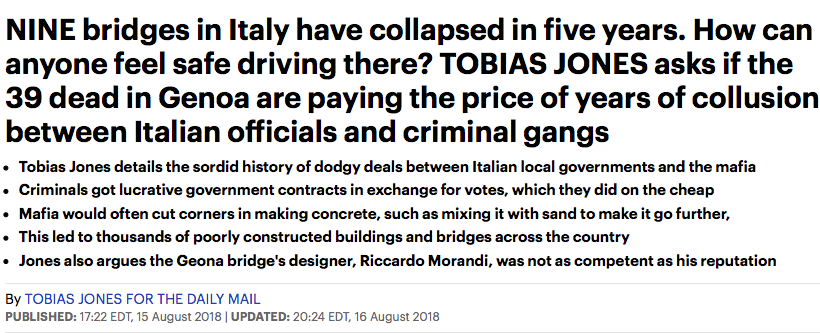



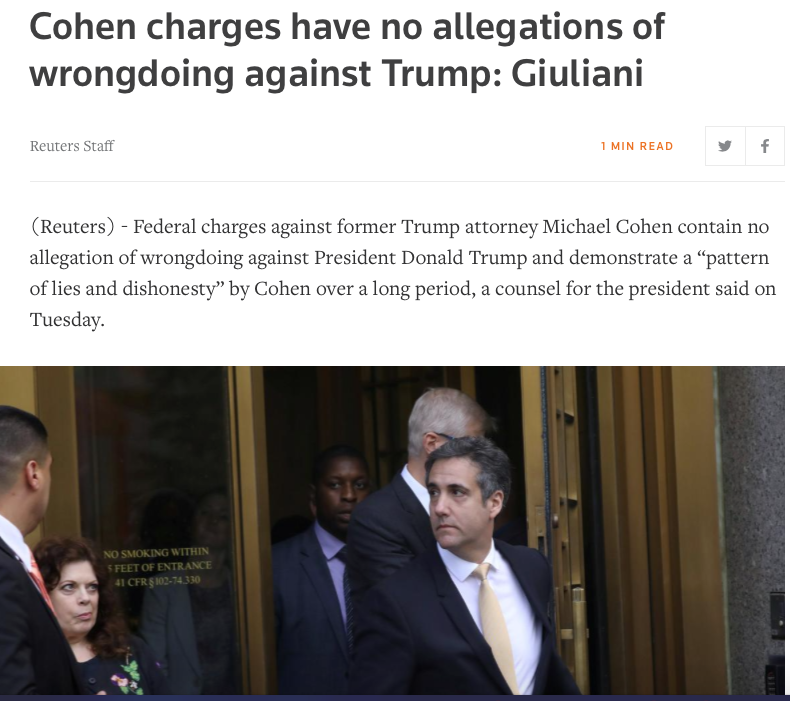




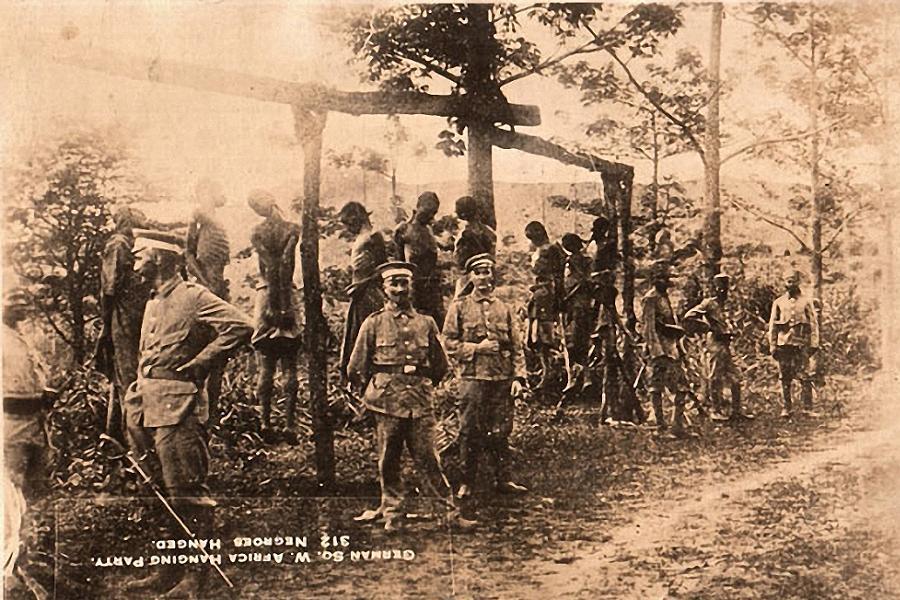
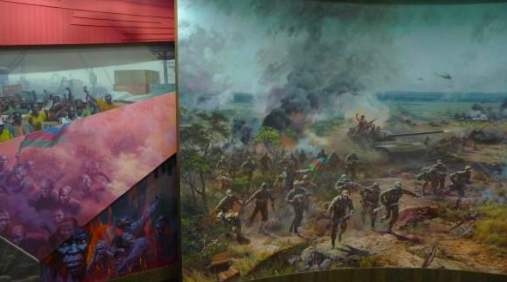
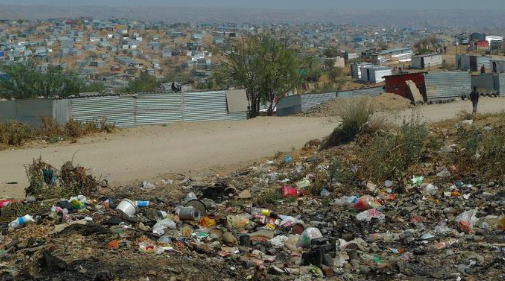

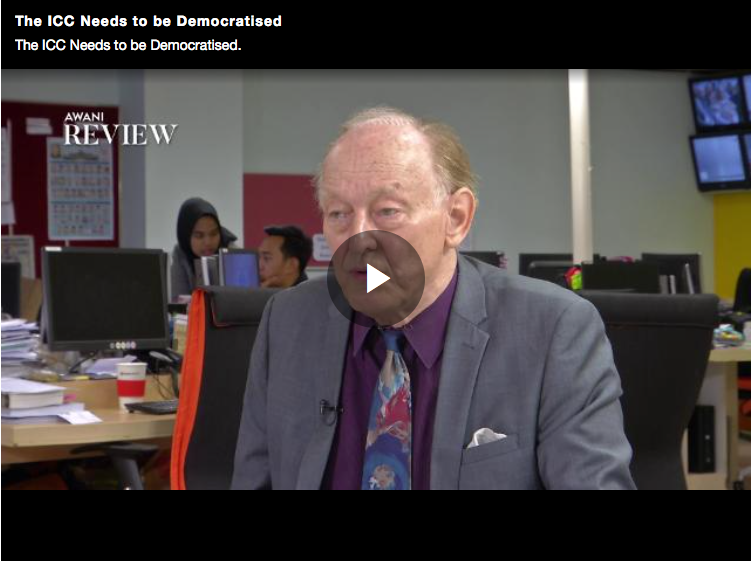
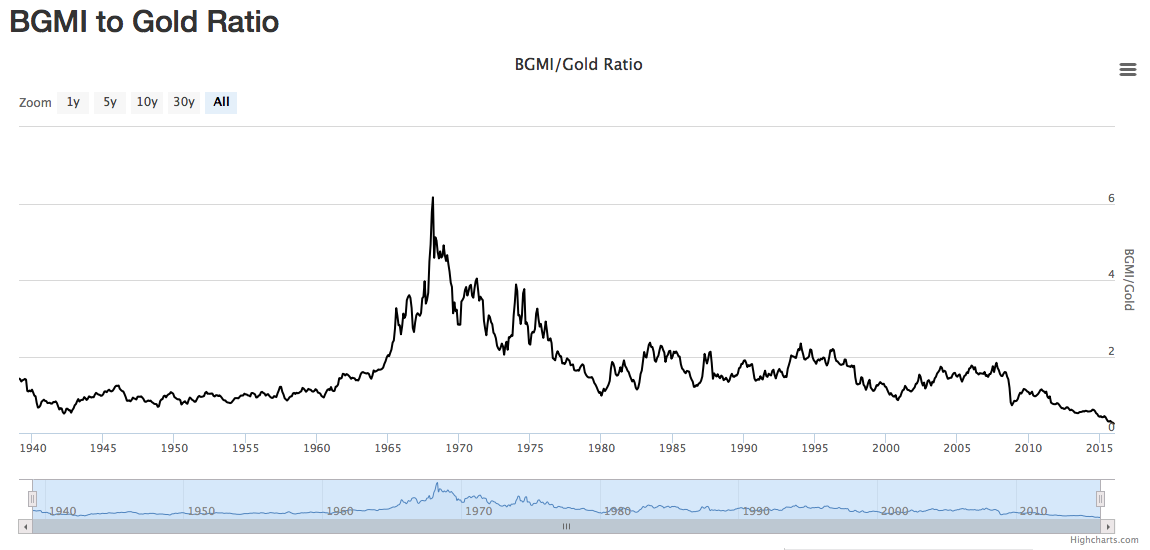



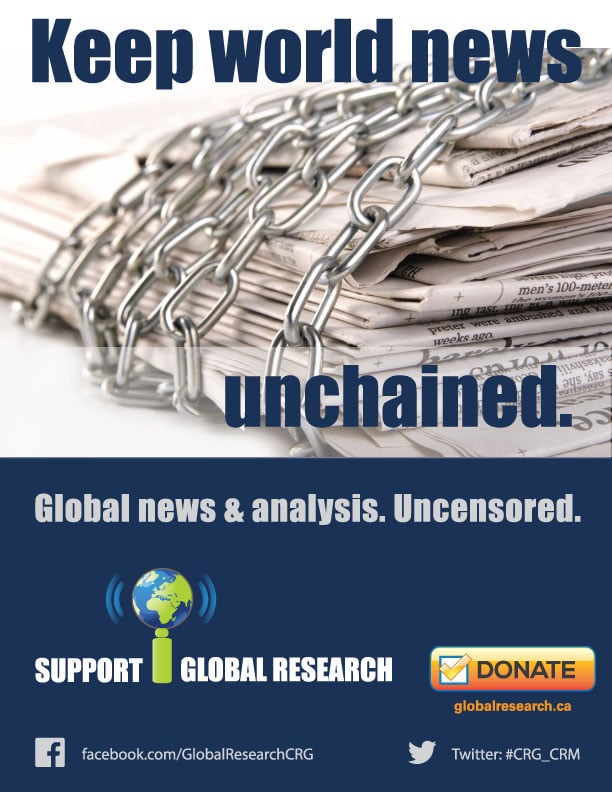 Can you
Can you 
